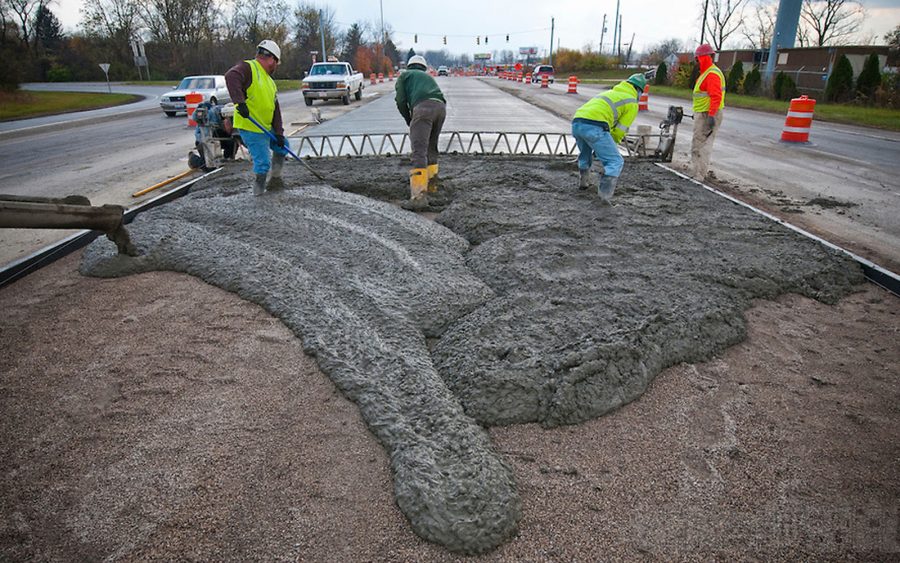The quality of infrastructure in Nigeria is poor. Nigeria has a considerable infrastructure deficit because the Nigeran economy is not generating sufficient revenues to close an infrastructure gap estimated by Moodys at about $3 trillion. According to the African Infrastructure Development Index, Nigeria ranks 23rd out of 54 African economies in Infrastructure development. Nigeria has to get innovative.
Nigeria has no funds for infrastructure
Nigeria is faced with weak organic revenues and suffocatingly high debt servicing. Between January and May 2021, the Federal Government of Nigeria (FGN) earned N1.84 trillion but spent N1.8 trillion on debt service alone. This spending translates to 98% of revenues flowing only to debt service. This debt profile is similar to the 99% of revenues used to service debt in Q1 2020.
Nigeria is going off-balance sheet via Tax For Infrastructure
Nigeria is getting innovative with infrastructure financing by deploying fiscal policy to drive infrastructure development. In January 2019, President Mumamadu Buhari signed into effect the Companies Income Tax (Road Infrastructure Development and Refurbishment Investment Tax Credit Scheme) Order 2019.
This tax scheme enables the participant company to recover the cost incurred by constructing or refurbishing eligible roads as a credit against Company Income Tax payable by the participating company. The tax credit can be carried forward to subsequent years until it is fully utilized and is tradable. A participant company can sell or transfer its unused tax credit to other companies.
Zainab Ahmed, the Minister of Finance, said the scheme would incentivize private sector investment in Nigerian roads across critical economic corridors and industrial clusters, relieving the government of the burden of funding the initial outlays for these investments. She is right.
A few of the participating companies who have indicated an interest in this scheme include:
- MTN: 110km Enugu-Onitsha road in Anambra State in exchange for tax credits.
- Transcorp Group: Oyinbo-Izuoma-Mirinwayi-Oklama-Afam Road;
- Access Bank: Oniru axis of VI-Lekki circulation road in Lagos State
- GZI Industries: Umueme village road, Abia State.
- Mainstreet Energy: Malando-Garin Baka-Ngwaski Road
- The BUA: Bode-Saadu-Lafiagi road; Eyinkorin road and bridge
- NLNG: Bodo-Bonny bridges and road
- The Dangote Group: Obajana-Kabba road
The most prominent participant is Dangote Cement Plc, a tax credit certificate worth N22.3 billion was awarded to Dangote to construct the Apapa-Oworonshoki-Ojota road in Lagos and the Lokoja-Obajana-Kabba road connecting Kogi and Kwara States.
The N15 trillion fund
Nigeria is also looking to do infrastructure the old fashioned way. The FGN is setting up a company called InfraCo, a Public-Private Partnership to raise long-term funds with a start-up seed fund of N1 trillion, with a mandate to raise a further N15 trillion in debt and equity. Infraco will have on her Board the Central Bank of Nigeria, Nigerian Sovereign Investment Authority, Pension Fund Administrators and African Finance Corporation
Nigeria has selected multiple asset managers to “create healthy competition,” including Sanlam Infraworks, AIIM, a unit of South Africa’s Old Mutual Group, Chapel Hill Denham, Tripple A consortium comprising AfricaPlus Partners Arc Asset Management as well as Afrinvest West Africa.
In essence, Nigeria is also going off-balance sheet and mandating these asset managers to borrow or raise equity for infrastructure projects. The off-balance sheet is terrific because it takes the funding of infrastructure projects away from the 4 to 8 years cycle of elections. These off-balance sheet funding should also have provisions to ringfence revenue bonds set up to develop projects from the government’s grasp. This financial model also develops the capital market by providing fund managers like the Pension Fund Administrators and outlets for long term asses to match their liabilities. Overall this is a net positive.
Will investors trust the government to abide by the terms of Infraco? The tax authorities have been very aggressive in accessing “Best of Judgment” type tax assessment on foreign companies and insisting companies making revenues register in Nigeria.
Other Incentives
Other incentives are available to companies in rural areas to invest in infrastructure and claim tax credits. Essentially, companies located more than twenty kilometres from government facilities providing electricity, water, or tarred roads can write the CAPEX portion as follows; 100% where there are no facilities, 50% where there is no electricity, 30% where there is no water and 15% where there are no tarred roads.
This is similar to the Road Infrastructure Development and Refurbishment Investment Tax Credit Scheme but specific to the rural areas.
The above examples show a government being innovative in partnering with the private sector to close the infrastructure gap with private sector funds.
The NNPC/Dangote deal is an outlier
The Nigerian National Petroleum Corporation (NNPC) has indicated its desire to invest in 20% of the massive Dangote Refinery. According to the MD of the NNPC, Mele Kyari, “There is no resource-dependent country that will watch a business of this scale, which borders on energy security and has implications for the country’s financial security and not have a say.”
Investing in the refinery has a business case, but why is the NNPC, a Federation entity, borrowing in foreign currency to invest in a private business? The Dangote Refinery has already received preferential USD allocations from the CBN. Dangote will also buy Nigerian crude priced in USD in Nigerian Naira. These incentives, if monetized, are more than enough to acquire equity in the Dangote Refinery.
The NNPC can do a swap deal with Dangote Refinery, offering its crude allocation for equity. A swap deal will be in line with the government’s PPP strategy and reduce the debt overhang of the Federation.
